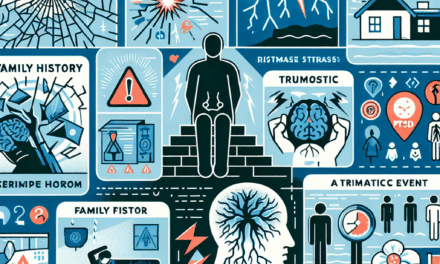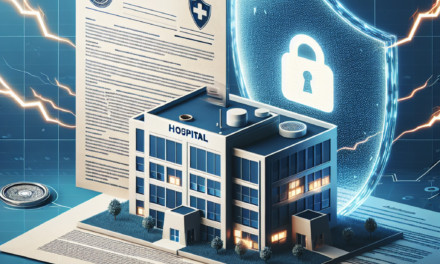Selecting the Ideal Lawyer for Your Medical Negligence Case
Medical negligence cases can be complex and emotionally taxing. When you or a loved one has suffered due to a healthcare provider’s failure to meet the standard of care, it is crucial to have the right legal representation. Selecting the ideal lawyer for your medical negligence case can significantly impact the outcome of your claim. This article will guide you through the essential factors to consider when choosing a lawyer, ensuring you make an informed decision.
Understanding Medical Negligence
Before diving into the selection process, it is essential to understand what medical negligence entails. Medical negligence occurs when a healthcare professional fails to provide the standard of care expected in their field, resulting in harm to the patient. This can include misdiagnosis, surgical errors, medication mistakes, and failure to obtain informed consent.
According to the Journal of Patient Safety, medical errors are the third leading cause of death in the United States, accounting for over 250,000 deaths annually. This staggering statistic highlights the importance of holding healthcare providers accountable for their actions. Understanding the nuances of medical negligence will help you communicate effectively with potential lawyers and assess their expertise.
1. Assessing Experience and Specialization
One of the most critical factors in selecting a lawyer for your medical negligence case is their experience and specialization in this area of law. Medical negligence is a niche field that requires specific knowledge and skills. Here are some points to consider:
- Years of Practice: Look for a lawyer who has been practicing medical negligence law for several years. Experience often correlates with a deeper understanding of the legal landscape and the ability to navigate complex cases.
- Track Record: Investigate the lawyer’s track record in handling medical negligence cases. A successful history of settlements and verdicts can indicate their capability in achieving favorable outcomes for clients.
- Specialization: Ensure that the lawyer specializes in medical negligence or personal injury law. General practitioners may not have the specific knowledge required to handle the intricacies of medical malpractice cases.
- Continuing Education: The medical field is constantly evolving, and so is the law surrounding it. A lawyer who engages in continuing education and stays updated on medical advancements and legal changes will be better equipped to represent your case.
For example, a lawyer who has successfully represented clients in cases involving surgical errors will have a better understanding of the medical standards and practices involved than a general personal injury lawyer. This specialized knowledge can be crucial in building a strong case.
2. Evaluating Communication Skills
Effective communication is vital in any attorney-client relationship, especially in medical negligence cases where the details can be intricate and emotionally charged. Here are some aspects to evaluate:
- Initial Consultation: Pay attention to how the lawyer communicates during your initial consultation. Are they attentive, empathetic, and willing to listen to your concerns? A good lawyer should make you feel comfortable discussing sensitive issues.
- Clarity of Explanation: The lawyer should be able to explain complex legal concepts in a way that you can understand. If they use jargon without clarification, it may indicate a lack of concern for your understanding.
- Responsiveness: Assess how quickly the lawyer responds to your inquiries. A lawyer who is prompt in communication is likely to be diligent in handling your case.
- Regular Updates: Ensure that the lawyer commits to providing regular updates on your case’s progress. This transparency is crucial for maintaining trust and confidence in their representation.
For instance, if you feel that your lawyer is not adequately explaining the legal process or is unresponsive to your questions, it may be a red flag. A strong attorney-client relationship is built on open and effective communication.
3. Understanding Fee Structures
Legal fees can vary significantly among lawyers, especially in medical negligence cases. Understanding the fee structure is essential to avoid any surprises later on. Here are some common fee arrangements:
- Contingency Fees: Many medical negligence lawyers work on a contingency fee basis, meaning they only get paid if you win your case. This arrangement can be beneficial for clients who may not have the financial resources to pay upfront legal fees.
- Hourly Rates: Some lawyers charge by the hour. This can be more expensive, especially if the case is prolonged. Ensure you understand how the lawyer tracks their hours and what activities are billable.
- Retainer Fees: A retainer fee is an upfront cost paid to secure the lawyer’s services. This fee is often deducted from future billable hours or contingency fees.
- Additional Costs: Inquire about any additional costs that may arise during the case, such as court fees, expert witness fees, and administrative costs. Understanding the full financial picture will help you budget accordingly.
For example, if a lawyer charges a 30% contingency fee and your case settles for $500,000, you would owe them $150,000. However, if there are additional costs, you need to factor those into your overall expenses. Always clarify the fee structure before signing any agreements.
4. Researching Reputation and Reviews
The reputation of a lawyer can significantly influence your decision. A lawyer with a strong reputation in the legal community is more likely to have the respect of judges and opposing counsel, which can be advantageous in negotiations and court proceedings. Here are some ways to research a lawyer’s reputation:
- Online Reviews: Websites like Avvo, Martindale-Hubbell, and Google Reviews can provide insights into a lawyer’s reputation. Look for patterns in reviews, such as consistent praise for communication or successful outcomes.
- Referrals: Ask friends, family, or colleagues if they have any recommendations. Personal referrals can provide valuable insights into a lawyer’s character and effectiveness.
- Professional Associations: Check if the lawyer is a member of professional organizations, such as the American Association for Justice or state bar associations. Membership in these organizations often indicates a commitment to ethical practices and ongoing education.
- Disciplinary Records: Research any disciplinary actions taken against the lawyer. Most state bar associations provide access to this information, which can help you avoid lawyers with a history of unethical behavior.
For instance, if a lawyer has numerous positive reviews highlighting their successful outcomes in medical negligence cases, it may indicate their capability and reliability. Conversely, a lawyer with multiple complaints or disciplinary actions should raise concerns.
5. Trusting Your Instincts
Finally, trust your instincts when selecting a lawyer for your medical negligence case. The attorney-client relationship is built on trust and confidence, and it is essential to feel comfortable with your choice. Here are some factors to consider:
- Personal Connection: Do you feel a personal connection with the lawyer? A strong rapport can make it easier to discuss sensitive issues and collaborate effectively throughout the case.
- Confidence in Expertise: Do you feel confident in the lawyer’s expertise and ability to handle your case? If you have doubts about their knowledge or skills, it may be worth exploring other options.
- Comfort Level: Are you comfortable discussing your case with the lawyer? If you feel intimidated or dismissed, it may indicate that they are not the right fit for you.
- Gut Feeling: Sometimes, your gut feeling can be a powerful indicator. If something feels off during your interactions, it may be worth considering other candidates.
For example, if you meet with a lawyer who seems disinterested in your case or rushes through your consultation, it may be a sign that they are not fully invested in your situation. Trusting your instincts can help you find a lawyer who genuinely cares about your case and will advocate for your best interests.
Conclusion
Selecting the ideal lawyer for your medical negligence case is a critical step in seeking justice and compensation for your suffering. By understanding the complexities of medical negligence, assessing experience and specialization, evaluating communication skills, understanding fee structures, researching reputation, and trusting your instincts, you can make an informed decision.
Remember that the right lawyer will not only possess the necessary legal expertise but will also be someone you feel comfortable working with throughout the process. Take your time in making this important decision, as it can significantly impact the outcome of your case. With the right legal representation, you can navigate the complexities of medical negligence law and work towards achieving the justice you deserve.





